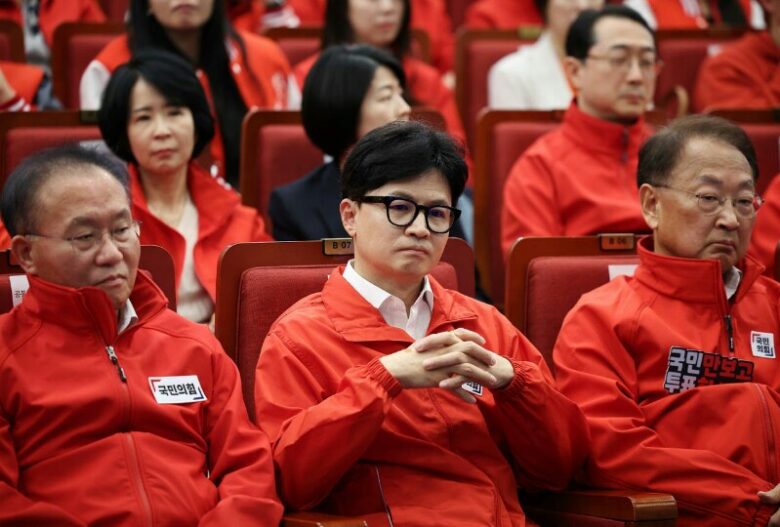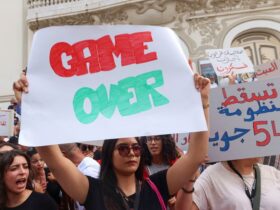South Korea’s prime minister and senior presidential officials have reportedly offered to resign on Thursday following a devastating defeat of their conservative ruling party in parliamentary elections.
The outcome of Wednesday’s election dealt a significant blow to President Yoon Suk Yeol, derailing his domestic agenda and exposing him to an escalating political onslaught from his liberal adversaries for the remainder of his three-year term in office, according to media reports.
South Korean media outlets, including Yonhap news agency, have reported that Prime Minister Han Duck-soo and Mr.
Yoon’s top advisers have submitted their resignations. However, Mr. Yoon’s office has not yet officially confirmed these reports.
In a separate news conference, ruling People Power Party leader Han Dong-hoon announced his decision to step down, citing accountability for the election defeat.
With the majority of the votes tallied, the main opposition Democratic Party and its affiliated party seem to have secured a combined total of 175 seats in the 300-member National Assembly.
South Korean media projections indicate that another minor liberal opposition party is anticipated to win 12 seats through the proportional representation system.
Meanwhile, Mr. Yoon’s ruling People Power Party and its affiliated party are projected to have secured 109 seats.
The final official results are expected to be announced later on Thursday.
The election outcome signifies a continuation of control by the liberal opposition in parliament.
However, they are unlikely to achieve the supermajority of 200 seats necessary to exercise legislative powers such as overturning vetoes and impeaching the president.
Wednesday’s election was widely interpreted as a midterm confidence vote on Mr. Yoon, a former top prosecutor who assumed office in 2022 for a single five-year term.
Mr. Yoon has vigorously pursued closer cooperation with the US and Japan as a strategy to tackle a range of challenging security and economic issues.
However, he has encountered obstacles including low approval ratings domestically and a parliament controlled by the liberal opposition, which has constrained his ability to advance major policy initiatives.
YOU MAY ALSO READ: Guatemala’s president declares natural disaster amidst 44 ongoing forest fires









Got a Question?
Find us on Socials or Contact us and we’ll get back to you as soon as possible.